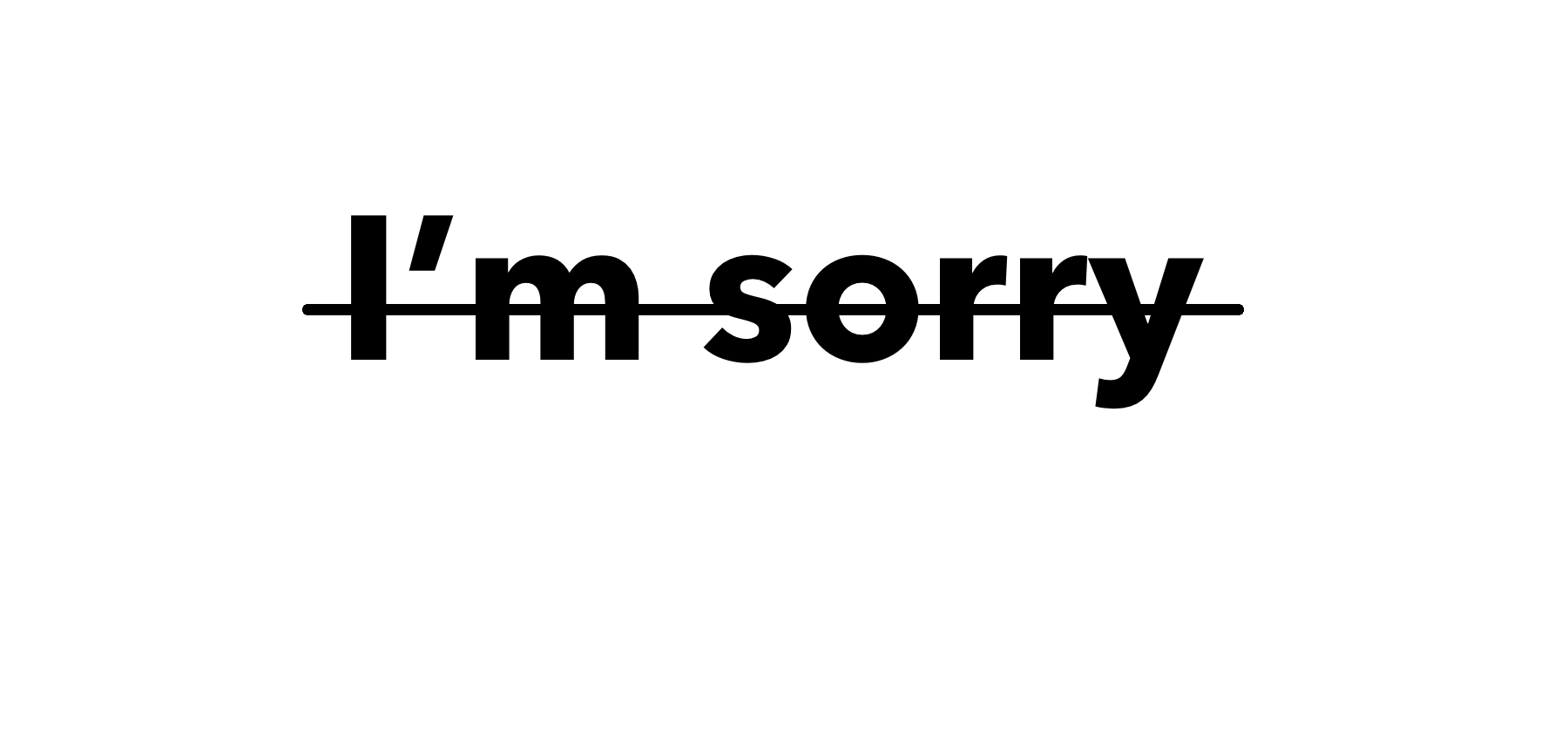
Try these phrases instead saying "I’m sorry" at work, which can make you look weak
Saying “I’m sorry” after certain situations, even those that don’t require an apology, is second nature for many people. But over-apologizing can backfire, especially in the workplace: It can make others think less of you, lower your self-esteem, and water down the impact of future apologies. Here are three common scenarios where you might be tempted to over-apologize, and what to consider saying instead.
If you’re experiencing technical difficulties
Hybrid and remote work gained popularity in the last few years, causing people to use their electronic devices more than ever. Unfortunately, no matter how tech-savvy you are, technical difficulties are bound to occur. And they usually aren’t your fault.
Think about a glitchy video call, for example. You might feel compelled to apologize if it takes a long time for a presentation to load, if buttons malfunction, or if there’s another technical lag.
‘I’m sorry’ is often a phrase that people use when they need to fill space. They aren’t comfortable with silence.
Instead of apologizing for things that are out of your control, use phrases like, “I appreciate your patience” and “Thank you for working with me” to overcome any awkwardness and reinstate an air of confidence.
If you need to join a conversation
Suppose you’re attending a meeting led by a colleague. Someone raises a point you agree or disagree with, and you want to share your viewpoint.
You might decide to interject by saying, “Sorry, but I’d like to weigh in”
This situation does not require an apology)
If you have information to add to a conversation or an opposing point of view, that’s completely OK. People use ‘I’m sorry’ in these situations to penetrate the conversation and have their voice heard when they don’t have to.
Instead of apologizing, use phrases like “I’d love to add,” “I think that,” or “Here’s a different perspective”. These phrases help you contribute without sounding scared to do so.
Assess the situation before you speak using the STAR (Situation, Task, Action, and Result) method, which can alleviate the need to apologize.
You want to express an opposing point. First, consider the situation and ask yourself, ‘Is this an appropriate time?’ If not, think about what task you can do, maybe reaching out to a manager or advisor beforehand, before saying something you may have to apologize for.
Decide what action you want to take, and ask yourself, ‘What result am I looking for after this conversation?’
If you’ve made an error
We all make mistakes, especially at work. If you’ve done a task incorrectly or you’ve accidentally offended someone, saying “I’m sorry” wouldn’t be the wrong response, necessarily, but it wouldn’t be the strongest response, either.
When you do something wrong, the reply doesn’t have to be ‘I’m sorry,’. You can speak to the action you’ll do to investigate or resolve the problem.
Other phrases can better show that you’re ready to do what it takes to make the situation right. Those can include:
- “Thank you for the feedback”
- “I take full responsibility”
- “I appreciate your bringing that to my attention — how can I improve?”
It’s ideal to only say “I’m sorry” when you truly mean it to ensure it comes across as genuine.
Want to study English go to the Vinnytsia IT Academy site
Don't forget to help Ukrainian Army: https://mre.uspih.vn.ua/
*Don't use russian education services - the list
